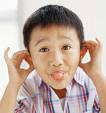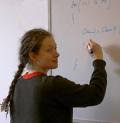Although several studies have suggested an association between violent crime and Aspergers (high functioning autism), few have examined the underlying reasons. All kids display oppositional or aggressive behavior from time to time, especially when they are upset, tired, or hungry. Oppositional behavior, such as arguing, lying, and disobeying, is a normal part of development for kids and early teenagers. When this behavior is frequent or excessive, affects the youngster’s home or school life, or violates the rights of others, a conduct disorder may be present. In this post, we will discuss the following: What is conduct disorder? What are the signs of conduct disorder? How common is conduct disorder? Who is at risk for conduct disorder? What help is available for families? What can parents do? How to Identify Conduct Disorder 4 Crucial Mistakes in Dealing with Oppositional Behavior The Best Way To Help Oppositional Children CLICK HERE for the full article...

